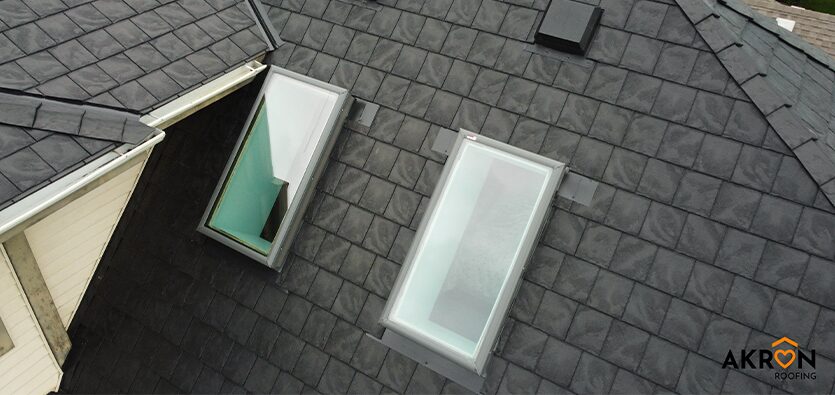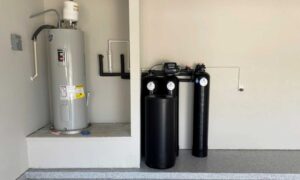How A Water Softener Can Extend The Life Of Your Plumbing System
Hard water is a common issue in many homes, causing mineral buildup, plumbing damage, and reduced appliance efficiency. Over time, calcium and magnesium deposits accumulate in pipes, faucets, and water-using appliances, leading to clogs, corrosion, and costly repairs.
A water softener is the best solution to prevent hard water damage. It removes excess minerals, protecting your plumbing system, fixtures, and appliances while improving overall water quality.
For homeowners looking to install a water softener system, working with a reliable plumbing company such as Jackdup Plumbing Calgary ensures proper setup and long-term performance.
This article explores how a water softener system can extend the lifespan of your home’s plumbing and save you money on repairs and replacements.
What Is Hard Water And Why Is It A Problem?
Hard water contains high concentrations of calcium and magnesium, which can cause several plumbing-related problems.
These minerals leave behind scale deposits, which gradually clog pipes, reduce water pressure, and damage appliances.
Common Problems Caused by Hard Water:
- Pipe Clogs – Scale buildup reduces water flow and increases pressure in your pipes.
- Reduced Water Heater Efficiency – Hard water causes sediment accumulation in water heaters, forcing them to work harder.
- Faucet & Fixture Damage – Scale buildup affects showerheads, faucets, and toilets, reducing their lifespan.
- Dry Skin & Hair – Hard water can strip natural oils, causing dryness and irritation.
- Stains on Sinks & Dishes – Hard water leaves behind white spots and residue on glassware and fixtures.
If you experience any of these issues, installing a water-softening system can help prevent long-term plumbing damage.
How A Water Softener Works
A water softener removes calcium and magnesium ions through an ion exchange process, replacing them with sodium or potassium ions. This prevents scale formation, allowing water to flow freely through your plumbing system.
The Water Softening Process:
- Hard water enters the softener’s resin tank, where negatively charged resin beads attract calcium and magnesium.
- Minerals stick to the resin beads and softened water flows into your home’s plumbing system.
- The system regenerates by flushing brine water, removing accumulated minerals and recharging the resin.
By continuously softening water, this system protects pipes, appliances, and fixtures from mineral damage.
Benefits Of Installing A Water Softener
1. Prevents Pipe Clogs And Corrosion
Hard water minerals accumulate inside pipes, leading to blockages and reduced water pressure. Over time, this can cause pipe corrosion and potential water leaks.
With a water softener:
- Scale buildup is eliminated, preventing pipe restrictions.
- Pipes remain free from corrosion, extending their lifespan.
- Water flows smoothly, reducing the need for plumbing repairs.
2. Extends The Lifespan Of Water-Using Appliances
Water heaters, dishwashers, and washing machines are highly affected by hard water damage. Mineral deposits reduce their efficiency, leading to higher energy costs and frequent breakdowns.
A water softener:
- Prevents sediment buildup in water heaters, reducing energy consumption.
- Protects internal components in dishwashers and washing machines.
- Increases appliance lifespan, delaying costly replacements.
3. Protects Faucets And Fixtures
Scale buildup can make faucets, showerheads, and toilets look discoloured and worn out. Over time, hard water deposits cause leaks and reduced performance.
With softened water:
- Fixtures last longer without scale damage.
- Showerheads and faucets maintain steady water pressure.
- Bathroom surfaces stay cleaner, with fewer stains and residue.
4. Improves Water Quality for Skin and Hair
Hard water strips away moisture, leaving skin feeling dry and hair brittle. Softened water retains natural oils, leading to:
- Softer skin and smoother hair.
- Less soap scum on the skin, reducing irritation.
- Stronger, healthier hair with improved shine.
5. Saves Money On Maintenance And Repairs
By preventing mineral buildup, a water softener reduces plumbing repair costs and lowers energy bills. It also minimizes the need for frequent appliance replacements, saving homeowners thousands of dollars over time.
Signs Your Home Needs A Water Softener
If you’re unsure whether your home needs a water softener system, look for these signs:
- White spots on dishes and glassware after washing.
- Reduced water pressure due to scale buildup inside pipes.
- Frequent faucet and showerhead clogs.
- Appliances break down more often than expected.
- Dry, itchy skin after bathing.
If you notice these issues, investing in a water softener system will help improve water quality and protect your plumbing.
How A Water Softener Saves You Money
Installing a water softener leads to long-term savings by reducing maintenance and replacement costs.
- Lowers plumbing repair expenses by preventing clogged pipes.
- Reduces water heater energy consumption, cutting utility bills.
- Extends the life of appliances, delaying costly replacements.
- Decreases soap and detergent usage, as soft water lathers better.
The upfront investment in a high-quality water softener quickly pays off by protecting your entire plumbing system.
Maintenance Tips For A Long-Lasting Water Softener
To ensure optimal performance, regular maintenance is essential:
- Check salt levels monthly and refill as needed.
- Clean the brine tank every 6-12 months to prevent salt buildup.
- Flush the system periodically to remove trapped minerals.
- Inspect valves and hoses for any leaks or malfunctions.
- Schedule annual servicing to keep the system running efficiently.
With proper care, a water softener can last 10-15 years, providing consistent protection for your plumbing system.
Conclusion
Hard water can cause significant damage to plumbing systems, appliances, and fixtures over time. Installing a water softener is a proven solution to prevent scale buildup, clogged pipes, and costly repairs.
By removing excess minerals, a water softener improves water pressure, extends appliance lifespan, and enhances overall water quality. Investing in softened water is a smart choice for any homeowner looking to protect their plumbing and save money on long-term maintenance.
If you’re experiencing hard water issues, now is the time to install a water softener system and enjoy cleaner, more efficient plumbing for years to come.



































